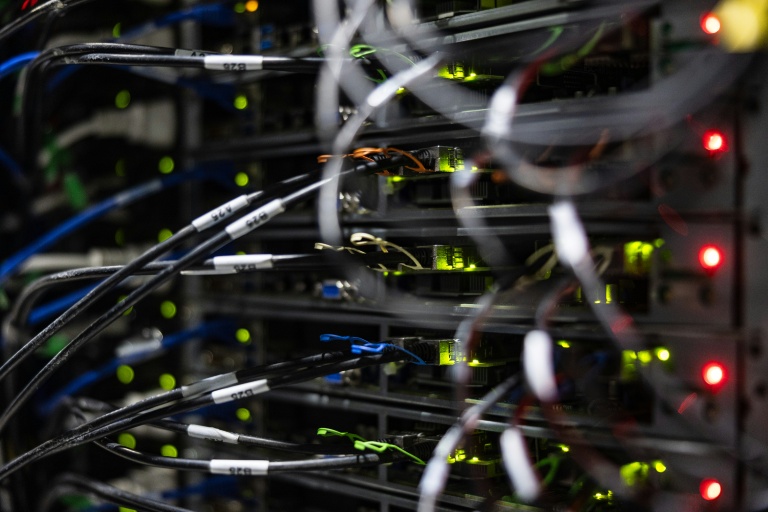Science
UN Vote May Prevent Internet Fragmentation, ICANN Leader Says

The potential fragmentation of the internet into national “splinternets” is likely to be avoided during a United Nations vote scheduled for December 15-16, 2023. Kurtis Lindqvist, the head of the Internet Corporation for Assigned Names and Numbers (ICANN), expressed optimism about the situation during the Web Summit technology conference in Lisbon. He stated that the majority of countries he has consulted, including those previously skeptical, now recognize the effectiveness of the current model governing the internet.
At the upcoming UN meeting, officials from member states will review the regulations that have guided internet governance for the past two decades. Some proposals suggest transferring control of managing internet addresses away from ICANN, which is based in the United States. This shift has garnered support from various governments and trade groups seeking more direct oversight.
Lindqvist warned that such a move could lead to a fragmented internet, where users might face significant challenges connecting across different address systems. He remarked, “There’s some careful optimism” that the existing governance structure will remain intact, emphasizing that negotiations regarding the text to be adopted at the meeting have only just begun.
The Importance of a Unified Internet
ICANN is primarily responsible for coordinating the global allocation of internet addresses, including both user-friendly domain names and the numerical IP addresses used by computers. A unified addressing system enables seamless communication, allowing anyone to access websites or send emails globally. Lindqvist highlighted that this interconnectedness creates substantial social and economic benefits, stating, “If we start fragmenting this by raising barriers or through policy actions, then we start diminishing this value creation.”
Lindqvist cautioned against complacency regarding the internet’s success. He noted that as the internet has become a fundamental part of daily life, there is a risk that its significance is taken for granted. This perspective underscores the necessity of maintaining robust governance structures to protect the internet’s unified nature.
Future of Internet Governance and AI Regulation
In addition to discussing the internet, Lindqvist also called on the UN to reassess its practice of reviewing internet governance every ten years. He believes that the current model has proven successful and should continue without significant disruption, a sentiment that he claims is echoed by most member states.
Conversely, the regulation of artificial intelligence (AI) presents a different challenge, with Lindqvist noting that “everything literally is on the table” in discussions among governments. The landscape for AI regulation is diverse, ranging from proposals for independent oversight similar to ICANN’s model to the establishment of a dedicated UN agency for AI governance. He remarked that the current discourse on AI regulation mirrors the debates of the late 1990s regarding internet governance.
As the December meeting approaches, the implications of these discussions could have lasting effects on how the internet is governed and the future of global digital communication. Lindqvist’s emphasis on unity reflects a broader recognition of the internet’s significance in modern society, underscoring the urgency of maintaining a cohesive global network.
-

 Education3 months ago
Education3 months agoBrandon University’s Failed $5 Million Project Sparks Oversight Review
-

 Science4 months ago
Science4 months agoMicrosoft Confirms U.S. Law Overrules Canadian Data Sovereignty
-

 Lifestyle3 months ago
Lifestyle3 months agoWinnipeg Celebrates Culinary Creativity During Le Burger Week 2025
-

 Health4 months ago
Health4 months agoMontreal’s Groupe Marcelle Leads Canadian Cosmetic Industry Growth
-

 Technology3 months ago
Technology3 months agoDragon Ball: Sparking! Zero Launching on Switch and Switch 2 This November
-

 Science4 months ago
Science4 months agoTech Innovator Amandipp Singh Transforms Hiring for Disabled
-

 Education3 months ago
Education3 months agoRed River College Launches New Programs to Address Industry Needs
-

 Technology4 months ago
Technology4 months agoGoogle Pixel 10 Pro Fold Specs Unveiled Ahead of Launch
-

 Business3 months ago
Business3 months agoRocket Lab Reports Strong Q2 2025 Revenue Growth and Future Plans
-

 Technology2 months ago
Technology2 months agoDiscord Faces Serious Security Breach Affecting Millions
-

 Education3 months ago
Education3 months agoAlberta Teachers’ Strike: Potential Impacts on Students and Families
-

 Science3 months ago
Science3 months agoChina’s Wukong Spacesuit Sets New Standard for AI in Space
-

 Education3 months ago
Education3 months agoNew SĆIȺNEW̱ SṮEȽIṮḴEȽ Elementary Opens in Langford for 2025/2026 Year
-

 Technology4 months ago
Technology4 months agoWorld of Warcraft Players Buzz Over 19-Quest Bee Challenge
-

 Business4 months ago
Business4 months agoNew Estimates Reveal ChatGPT-5 Energy Use Could Soar
-

 Business3 months ago
Business3 months agoDawson City Residents Rally Around Buy Canadian Movement
-

 Technology2 months ago
Technology2 months agoHuawei MatePad 12X Redefines Tablet Experience for Professionals
-

 Business3 months ago
Business3 months agoBNA Brewing to Open New Bowling Alley in Downtown Penticton
-

 Technology4 months ago
Technology4 months agoFuture Entertainment Launches DDoD with Gameplay Trailer Showcase
-

 Technology4 months ago
Technology4 months agoGlobal Launch of Ragnarok M: Classic Set for September 3, 2025
-

 Technology4 months ago
Technology4 months agoInnovative 140W GaN Travel Adapter Combines Power and Convenience
-

 Science4 months ago
Science4 months agoXi Labs Innovates with New AI Operating System Set for 2025 Launch
-

 Top Stories2 months ago
Top Stories2 months agoBlue Jays Shift José Berríos to Bullpen Ahead of Playoffs
-

 Technology4 months ago
Technology4 months agoNew IDR01 Smart Ring Offers Advanced Sports Tracking for $169










